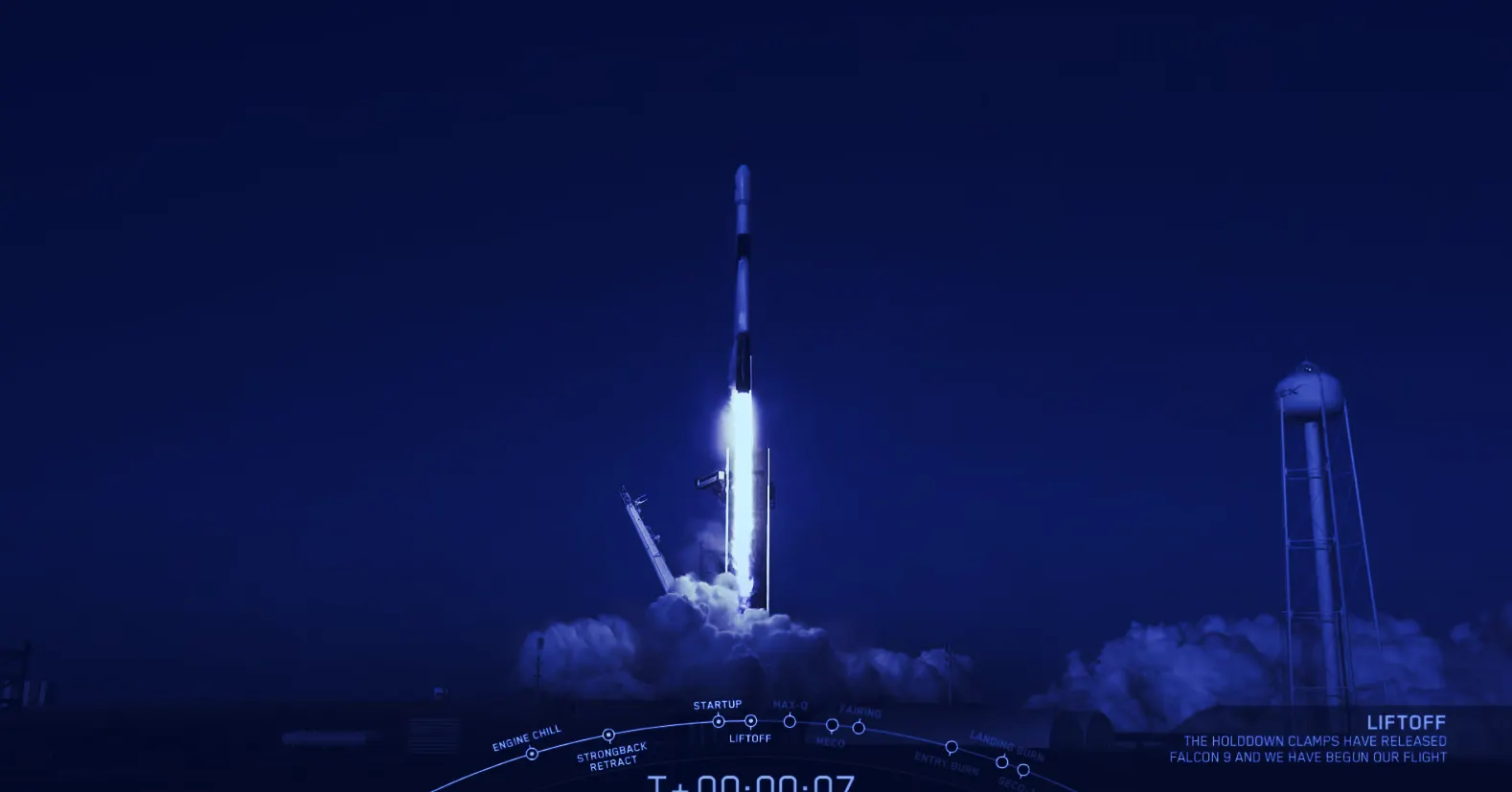In brief
- SpaceX today launched another batch of Starlink satellites into space.
- There are now 800 Starlink satellites orbiting the earth.
- The satellites will bring high-speed Internet to every corner of the globe, the company claims.
Elon Musk’s SpaceX today launched another batch of Starlink satellites into space—bringing the total number of capsules up to 800.
The satellites are part of a mission to bring high-speed Internet to every corner of the world.
SpaceX today announced that 60 satellites were being deployed from NASA’s Kennedy Space Center in Cape Canaveral, Florida. It broadcast the project’s fourteenth takeoff from the SpaceX website.
Watch Falcon 9 launch Starlink satellites to orbit → https://t.co/bJFjLCzWdK https://t.co/gx27elM67R
— SpaceX (@SpaceX) October 18, 2020
SpaceX—a company valued at nearly $50 billion—kicked off its Starlink project in 2015. It hopes that thousands of satellites will provide Internet services to almost everywhere in the world.
The reason? Almost half of the globe has little to no Internet access. SpaceX’s Starlink project wants to change that by orbiting satellites around the world so that remote areas of our planet can access the internet.
With these satellites, rural areas could access the internet at a speed of one gigabyte per second. That’s fast enough for ultra-high definition streaming, low-latency gaming, and all the Kumon math videos the world can handle.
Starlink's website says, "With performance that far surpasses that of traditional satellite internet, and a global network unbounded by ground infrastructure limitations, Starlink will deliver high-speed broadband internet to locations where access has been unreliable, expensive, or completely unavailable."
The ambitious project will be finished by 2021, according to Musk.
Starlink will soon be ready to go, said Musk. The company plans to roll out a "fairly wide public beta in northern US and hopefully southern canada," he tweeted last week. “Other countries to follow as soon as we receive regulatory approval.”
And Starlink is already in use in some places. Emergency responders in Washington State used it during the wildfires, and a remote Native American tribe in the State, the Hoh Tribe, uses it for remote learning.
Billionaire Musk in August offered to help Belarus—a country at the time rocked by protests. His offer was met by a petition asking Musk to choose Belarus as Starlink’s first test case due to regular Internet outages in the corrupt country. It's reached almost 15,000 signatures.
But not everyone is keen on the Starlink project. Some have complained that the project will make light pollution worse. Musk has said ‘sunshades’ will be fitted on the satellites to prevent this.

